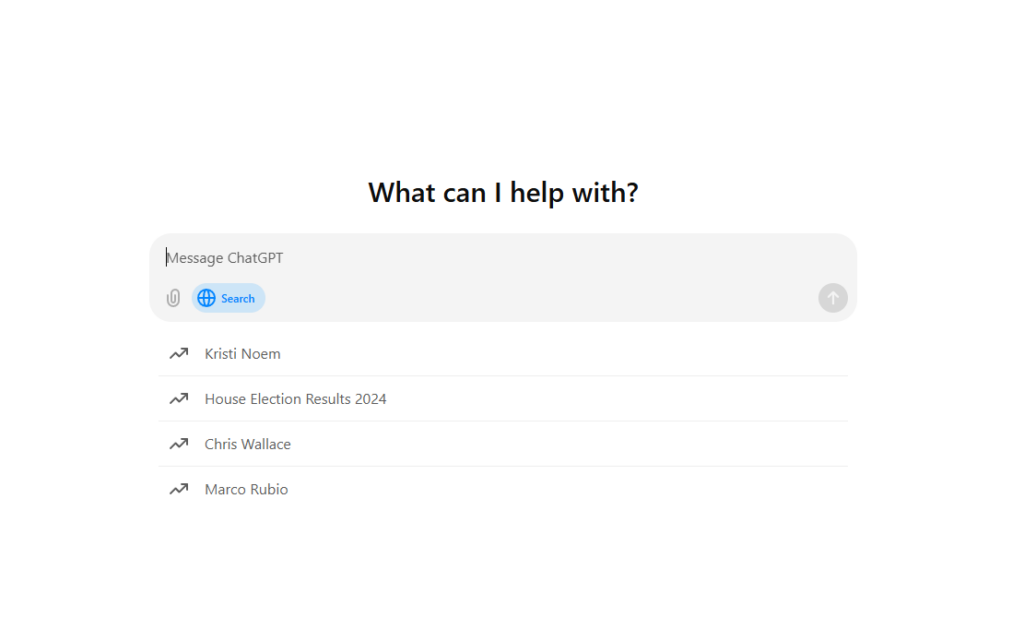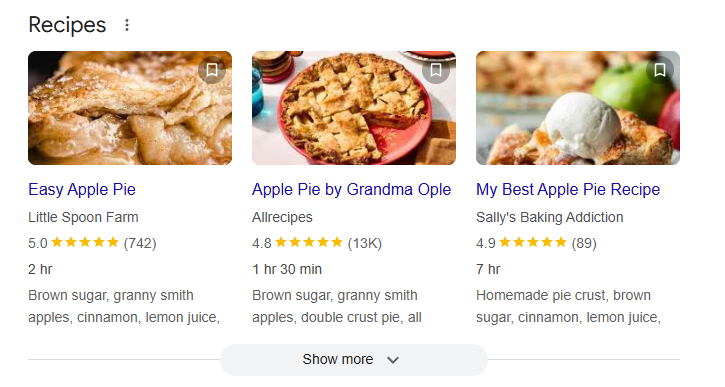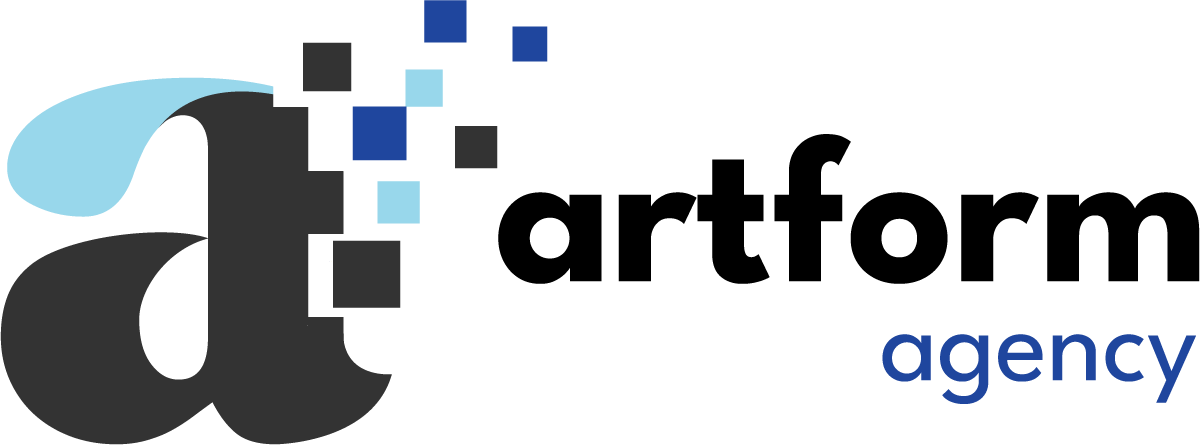ChatGPT’s New Search Feature: What It Means for Your SEO Strategy
ChatGPT now includes a search feature that enables it to pull live information from the web. In the ChatGPT message bar, you’ll notice a new Search icon. When clicked, it opens a dropdown with popular search terms, much like a search engine’s suggestions. With this update, users can now browse the internet within ChatGPT, accessing sources, videos, and detailed AI responses based on their search queries. OpenAI also launched a Chrome extension on October 31, adding even more flexibility to ChatGPT’s search capabilities.

What does this mean for Marketers?
Google initially drove the rise of zero-click search results with featured snippets and AI-driven answers, prompting SEO experts to adapt quickly. Now, ChatGPT’s new search functionality is accelerating this trend, offering direct responses that further reduce the need for users to click through to websites. For marketers and website owners, this intensifies questions about the future of CTR and site traffic: How can we continue to optimize for visibility and engagement in this rapidly shifting landscape?
At ArtForm, we employ a sophisticated approach to staying ahead of market shifts. Our team leverages advanced tools like GPT technology and Google Alerts to continuously monitor emerging trends and algorithm changes. By analyzing this data in real time, we proactively adjust our strategies, ensuring our clients remain competitive and their content stays optimized. This vigilance enables us to anticipate shifts in search behavior and adapt to new developments, such as the rise of zero-click results, with precision and expertise.
Is BING finally going to give Google actual competition?
One key factor to watch is ChatGPT’s partnership with Microsoft Bing. This partnership means that Bing’s search algorithms are increasingly relevant, and optimizing content for Bing could become more important. The addition of ChatGPT’s search feature could potentially shift user preference from the widely used Google search engine to Microsoft’s Bing search algorithm.

How People Search Using ChatGPT
Chatbots like ChatGPT naturally encourage users to type more conversationally, which is changing the way people search. By 2025, searches will likely become less about isolated keywords and more about complete questions. For instance, instead of simply typing “haircuts near me,” users might ask, “Where can I get the best haircut near me?” Search queries are becoming increasingly conversational and question-based. Get Your Free Checklist to Master AI-Driven SEO.
How to Optimize for This Shift?
To provide up-to-date and accurate responses, ChatGPT has integrated Microsoft’s Bing search infrastructure for real-time data access. Additionally, OpenAI has established partnerships with reputable news organizations, including The Associated Press, Reuters, Condé Nast, and Time, to source reliable information on key topics like weather, financial markets, sports, and current events.
These collaborations make leveraging ChatGPT as a foundational resource even more essential. While we’ve always advocated for using it strategically, the enhanced access to authoritative data sources now makes it more valuable than ever for keeping content timely and relevant.
Notable partnerships to be aware of include:
The Associated Press (AP): In July 2023, OpenAI and AP entered into a licensing agreement, granting OpenAI access to AP’s news stories dating back to 1985.
Observer
News Corp: In May 2024, OpenAI secured a multiyear deal with News Corp, allowing the use of content from publications such as The Wall Street Journal, Barron’s, and the New York Post.
AP News
Vox Media and The Atlantic: Also in May 2024, OpenAI partnered with Vox Media and The Atlantic, enabling ChatGPT to incorporate their articles into its training data.
Observer
Le Monde and Prisa Media: In March 2024, OpenAI announced collaborations with French newspaper Le Monde and Spanish media group Prisa Media, which includes El País, to integrate their content into ChatGPT.
OpenAI
What you can do now to get ahead and stay ahead!
Establish Expertise
Demonstrating expertise is essential to building audience trust. High-quality, well-researched content across your social channels and blog posts reinforces your team’s authority in the field. Since ChatGPT references reputable sources, establishing credibility is more important than ever.
Including author bios, references, citations, and showcasing partnerships are effective ways to build this credibility. Trusted sources are more likely to be referenced by ChatGPT, enhancing your visibility and authority.
Optimize for Bing
Structured Data Markup:
Adding structured data, also known as schema markup, helps search engines understand your content more effectively, boosting your chances of showing up in search snippets and direct answers.
Structured data works by adding special tags to your webpage’s HTML code. These tags highlight key information—like names, dates, locations, and categories—so search engines can quickly identify and display the most relevant parts of your content. This makes it easier for search engines, including ChatGPT’s underlying Bing infrastructure, to understand exactly what’s on your page.
Using structured data can make your search results more engaging and user-friendly, which can encourage more people to click and interact with your website.

Optimize for Conversational Queries:
Since ChatGPT works in a conversational style, it’s helpful to tailor your content to match. Focus on addressing common questions in clear, simple language. Use conversational, question-based keywords, and structure your content for quick answers—think FAQs or featured snippets.
To understand what your audience is curious about, check Google’s “People Also Ask” feature. This tool shows the types of questions people are searching around for your keywords and offers valuable insights into what your audience wants to know and the questions you should answer.
Local and Niche Keywords:
Bing often favors content that’s locally relevant, so it’s a good idea to include keywords specific to regions, demographics, or industries. Google’s “People Also Ask” feature can also help by showing you the types of questions people are searching for, which you can turn into long-tail keywords that target specific locations or interests. This helps you reach focused audiences more likely to engage with your content.
When users enter queries with local keywords—like “best pizza in D.C.”—ChatGPT, through its Bing integration, pulls in current, location-specific information. Since ChatGPT relies on real-time data, make sure your content stays regularly updated and relevant to maintain visibility.
Stay Relevant in Local Searches, Download Artform’s AI Optimization Checklist!
Stay Current with News and Trends
Regular Updates
Keeping content fresh is essential when ChatGPT uses real-time information. For time-sensitive topics like finance, sports, or weather, updating your articles frequently ensures they remain relevant. Simple updates—like changing dates or refreshing titles—can be quick ways to keep content current. Just make sure that each update is accurate and aligns with the latest information.
For more in-depth guidance on optimizing and maintaining relevant content, check out our Artform Newsletter.
Timely Topics and Industry Trends
Creating content around trending topics significantly increases your chances of being featured in AI-generated summaries. To maximize visibility, focus on news and themes that align with what ChatGPT’s audience is searching for. One easy way to stay current is by setting up Google Alerts to track the latest updates on key subjects you want to cover.
At ArtForm, we take this a step further by integrating GPT technology to monitor our Google Alerts and automatically generate blog outlines. This keeps us agile and ensures our content stays ahead of industry shifts. Want to elevate your content strategy with AI-driven insights? Contact us today to learn how we can implement this system for your team!
Use Structured Content and Summaries
Clear, Summarized Answers:
Create clear headings, bullet points, and summarized answers at the beginning of articles. This structure makes it easier for ChatGPT to extract information quickly. If you can’t answer a question quickly then no one will see your answer. FAQ and featured snippets can help you do this.
Featured Snippet Optimization:
Format answers for quick accessibility, mirroring how featured snippets are optimized. Use concise, factual statements for definitions, lists, and summaries.

Optimize Media and Visual Content
Adding the right visuals to your content can help improve how it ranks in search engines and make it easier for people to understand.
Use Descriptive Text for Images:
Adding detailed descriptions, or “alt text,” to images helps search engines understand what each picture is about. This can improve your content’s chances of appearing in search results. Alt text also makes your site more accessible for people who use screen readers, helping them understand what’s on the page.
Make Information Easy to Digest with Infographics and Summaries:
Visuals like infographics or tables help people quickly understand key points. These condensed summaries can make it easier for search engines to pull relevant information from your site, which can improve your chances of being featured in search results or AI summaries.
Build Credibility with Partnerships and Backlinks
Getting recognized by respected sites and building a network of trustworthy links to your site can boost your credibility.
Partner with Reliable Sources:
Content that’s connected to well-known sources, like news organizations (for example, Reuters or Time), is often seen as more trustworthy. Collaborating with these outlets, whether through partnerships or mentions, can add authority to your content.
Build a Network of Quality Backlinks:
Links to your content from trusted websites, known as “backlinks,” show search engines that your site is reliable. The more high-quality backlinks you have, the more likely search engines are to reference your content, which can improve your search rankings.
Monitor and Improve Content Engagement Metrics
Keep Visitors Engaged:
Metrics like how long visitors stay on a page, or how many pages they visit, show if they’re interested in your content. To keep them engaged, try adding interactive elements like quizzes, videos, or images. Also, link to other related pages on your site to encourage people to explore further.
Ask for Feedback:
Getting direct feedback from your audience is one of the best ways to know if your content is hitting the mark. Use simple tools like surveys, comment sections, or reaction buttons so visitors can easily share their thoughts. Review this feedback regularly to see what’s working and where you can improve. By making changes based on what people actually want, you’ll keep your audience interested and coming back.
Use Analytics to Spot Trends:
Tracking tools like Google Analytics can help you see patterns in how people interact with your content. Look at things like the average time spent on a page or how many people leave without clicking on anything else. Use these insights to make improvements to your content, helping it better meet your visitors’ needs and expectations.
Conclusion
AI tools like ChatGPT are changing how we search for information. With ChatGPT now using Bing’s search algorithms to pull up-to-date data, it’s more important than ever to keep an eye on Bing’s SEO guidelines. If Bing has a bigger say in what information shows up, optimizing for it will make a real difference in your visibility online.
Even with all these tech advancements, adding a human touch is still a big deal. While AI can be super helpful, it’s important to double-check the information it provides for any mistakes or biases.
To stay ahead, make sure your team is adapting to these changes. Use tools that help you create content for this more conversational way of searching, but don’t forget the basics—being trustworthy, accurate, and relatable. By mixing smart AI strategies with genuine, people-centered content, your SEO approach will be ready for whatever comes next.
Don’t Fall Behind in the AI Shift, Download Artform’s AI Optimization Checklist!


